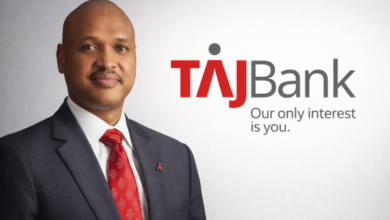CEAN records N3.73bn Cinema Spends by Nigerians in 2019

Cinema Exhibitors Association of Nigeria (CEAN) has in a data proven that Nigerians across major cities spent N3.730 billion on Top 20 movies (weekends) at several cinemas across the country, most of which were foreign ones in 2019.
According to the data which was obtained by Nairametrics, the movies, which were seen across Silverbird, VIVA Cinema, Genesis Deluxe Cinema, Film One Cinema, and Ozone Cinema among other Cinemas, were mainly divided into two: Foreign and local movies. While the foreign movies dominated the Top 20 movies chart (15 of them made the list) their local counterparts managed to get five spots on the list.
CEAN is an association of cinema owners, operators, and managers incorporated by the Corporate Affairs Commission (CAC) of Nigeria.
Top 20 movies and revenue

The chart revealed that more Nigerians spent about N3.042 billion on foreign movies, others spent N688.58 million on local movies. Local films only topped the chart twice. While ‘Bling Lagosian’, topped the list in the last weekend in June and July, ‘Living in Bondage: Breaking Free’ topped the chart almost all through November. The foreign movies dominated in the other months.
This shows consumer-driven content remains foreign movies, which was represented over 130 times on the weekend movie schedule compared to Nollywood movies which recorded about 100 appearances. This means Nollywood is still losing revenue to its foreign counterpart in the Nigerian market, a feat that can’t be achieved by Nollywood in the foreign market.
Top 20 Nollywood movies and earnings

This second chart means that viewers spent about N1.21 billion to see the local movies. Ramsey Noah’s Living in Bondage (Breaking Free) took the shine in 2019, as viewers spent N158.43 million on it in 2019, followed by Chief Daddy (Niyi Akinmolayan) as it earned N153.51 million. Ayo Makun’s Merry Men 2, Bolanle Austen-Peters’ Bling Lagosians, and Funke Akindele’s Your Excellency, all got N141.15 million, N120.13 million, and N115.36 million respectively.
Why Nollywood is lagging?
The love for Nollywood movies is still weak in the Nigerian market, and this is because some movie enthusiasts are skeptical about local films; storyline and picture quality are still the discouraging factors compelling Nigerians to favour their foreign counterparts.
In order to make up for the content, Nollywood producers cast A-List actors and actresses who are believed to be screen sellers, even cinema houses hardly screen movies without them in their cast.
This mean that the growth of the cinema culture in Nigeria is a significant advantage for Nollywood movie producers, who in the past have lost revenue to piracy. The Nollywood industry was once confronted by piracy and couldn’t curb the menace until the cinema business became an attractive investment opportunity for investors.
Although the N3.5 billion recorded for the year 2019 (weekends) is not enormous, with cinema culture gradually becoming a norm among Nigerians, the figure is certain to increase in 2020.
Like other industries, the cinema’s growth is also being threatened by the operations of Video-On-Demand services like Netflix and iRoko streaming platforms. Movie producers are being poached by tech investors to create content for their platforms, and they offer higher financial gains.
Platforms like Netflix offer needed exposure and award opportunities across the world. They also offer down payment regardless of the eventual acceptance by their subscribers; however, though Netflix provides a win-win situation for content providers, it poses a threat to cinema earnings.
Yetunde Adegoke












